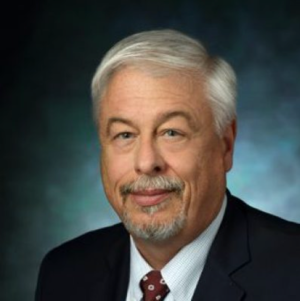We couldn’t resist the temptation to highlight some of Dr. Roth’s recent works and ask him a few more questions on the record before he retires.
Tony Teano: Thank you for this opportunity to speak with you again, Dr. Roth. I have a few questions for you about your latest research, as well as a few personal questions for you as you retire. Let’s start with research. Since January 2023, 18 articles were published on which you were part of the research team. Over the past year, which paper was most interesting to you as a researcher and why?
Dr. Roth: I would say the paper that we published in Research on Aging last year on inflammation levels in family caregivers (Roth, D. L., Bentley, J. P., Mukaz, D. K., Haley, W. E., Walston, J. D., & Bandeen-Roche, K. (2023): Transitions to family caregiving and latent variables of systemic inflammation over time. Research on Aging, 45, 173-184). This paper re-examined whether family caregivers have changes to their circulating inflammation levels and incorporated advances in measurement methods that can be used when multiple correlated biomarker measures are available. We found no differences between caregivers and non-caregiving controls on a traditional group of biomarkers (interleukin-6, C-reactive protein) but did find differences on a set of biomarkers thought to have more inhibitory effects (interleukin-2 and interleukin-10). Building off of our previous papers, this analysis highlighted the complexities involved when examining associations between psychological states, such caregiving stress, and biological vulnerabilities, such as biomarkers of stress and inflammation in blood samples.
Tony Teano: Last month, you gave a talk as part of your work with COAH’s Family & Social Resources Working Group, titled, “Can Advocacy Co-Exist with Objectivity?” In an age where research around various social justice issues can be charged, this is a very important question. In a nutshell, what are the main takeaways from your talk?
Dr. Roth: The image of the objective scientist who doesn’t really care what the research findings are is a myth, a fantasy. Researchers have values, agendas, and are advocates for certain positions, populations, theories, or treatment approaches, making complete objectivity impossible. However, for scientists and researchers, advocacy needs to be better balanced with the very important principle of truth-seeking. In my opinion, too many researchers have become cherry pickers, emphasizing papers and findings that support their narratives and positions, while ignoring or dismissing contrary evidence or alternative explanations. I believe that we need to strengthen the objective, truth-seeking aspect of science, and be more cautious and even-handed in our conclusions, so that the public trust in science and research can be restored.
Tony Teano: I recall once asking you what you would be doing if you weren’t a researcher, and part of your reply acknowledged fear of boredom while juxtaposing that against the fact that research is always fresh, challenging, and changing. As you enter into retirement, what will you do to keep yourself from being bored?
Dr. Roth: I plan to travel a lot, but also to consult and stay active intellectually. I hope to continue some academic pursuits, as a Professor Emeritus, including continuing to identify and expose unhealthy and misleading biases in certain corners of the published research literature. As long as I stay active, curious, and open to new experiences, then I hope boredom will not become a serious problem.
Tony Teano: What do you perceive as the most significant part your legacy at COAH?
Dr. Roth: I think we have substantially expanded the scope of the Center over the past decade. We have experts and contacts with colleagues in virtually every area of human aging, including cognition, physical frailty, mobility, disability, sensory functioning, family and social aspects, healthcare utilization, and international perspectives on aging. We have established several working groups that served as good mechanisms for building new collaborations and for maintaining consistent momentum on our many projects and priorities. I hope that this inclusive, expansive, collaborative spirit will live on, and I feel very fortunate that I had the opportunity to contribute to that here at Johns Hopkins.
Tony Teano: What are the keys to finding joy, meaning, and purpose in a career? And in life?
Dr. Roth: I think being open-minded, trying different things, and working with different kinds of people. I advise students and trainees to figure out what you are good at, partly by seeing what others value in you, and then seek to improve even more in those areas. I believe that interests follow from and develop from activities. Try it first, and then see if you like it, and are good at it. Some people seem to be overly constrained by their own pre-existing ideas of what their interests are or who they want to associate with. I think that can be limiting, and I like to be more open and exploratory in this regard.
Tony Teano: Dr. Roth, thank you for taking the time to answer these questions. I know I am not alone in saying that you will be missed as part of the COAH team, and that I wish you all the best for a wonderful, active retirement full of joy and great experiences!
As an investigator, Dr. Roth has contributed at least one meaningful, original, peer-reviewed, data-based research publication across a diverse range of topics every year for the past 39 consecutive years. Here is a sampling of some of the influential and highly cited papers by him and his colleagues:
- Assessing mobility in older adults: the UAB Study of Aging Life-Space Assessment
- Trajectories of life-space mobility after hospitalization
- Improving caregiver well-being delays nursing home placement of patients with Alzheimer disease
- Appraisal, coping, and social support as mediators of well-being in black and white family caregivers of patients with Alzheimer’s disease
- “Changes in social support as mediators of the impact of a psychosocial intervention for spouse caregivers in persons with Alzheimer’s Disease”
- “Family caregiving and all-cause mortality: Findings from a population-based propensity-matched analysis”
- “Is family caregiving associated with inflammation or compromised immunity? A meta-analysis”
- “The transition to family caregiving and its effect on biomarkers of inflammation”
Prior blogs about or by Dr. Roth:
- David L. Roth’s Recent Latent Variable Study Identifies Possible Inhibitory Pathway Contributing to Long-Term Caregiver Stress (Sept., 2022)
- Family Caregiving: An Essential Resource for Older Adults (Nov., 2021)
- David L. Roth to Receive the 2021 M. Powell Lawton Award from the Gerontological Society of America (Oct., 2021)
By Anthony L. Teano, MLA
Communications Specialist

